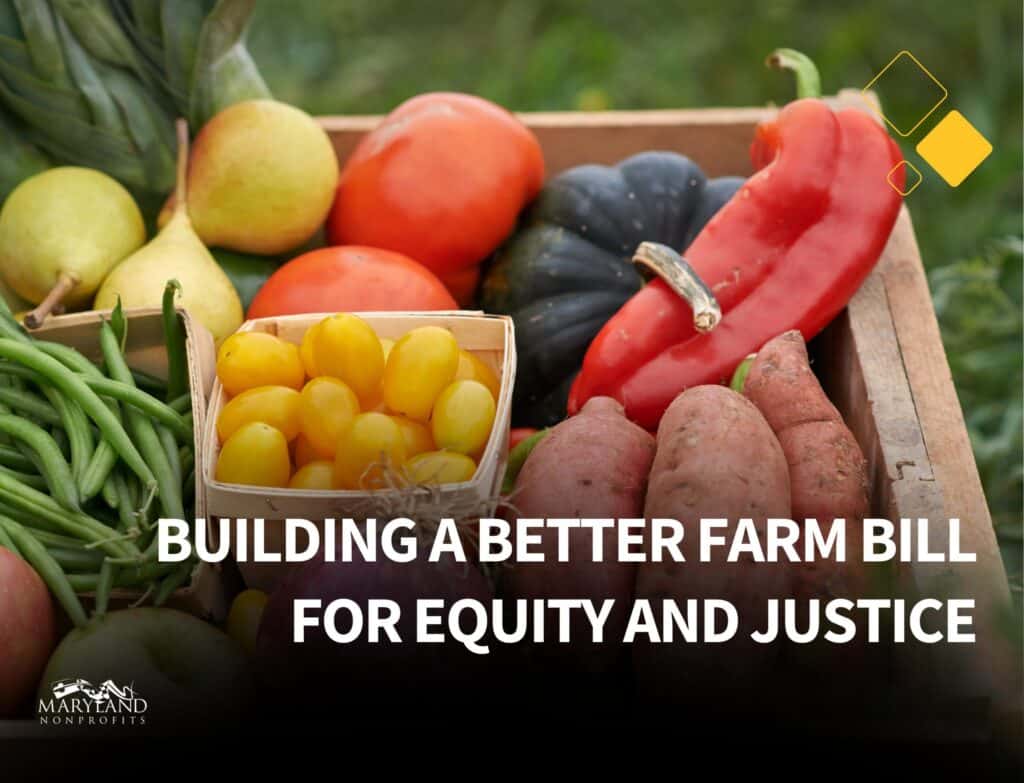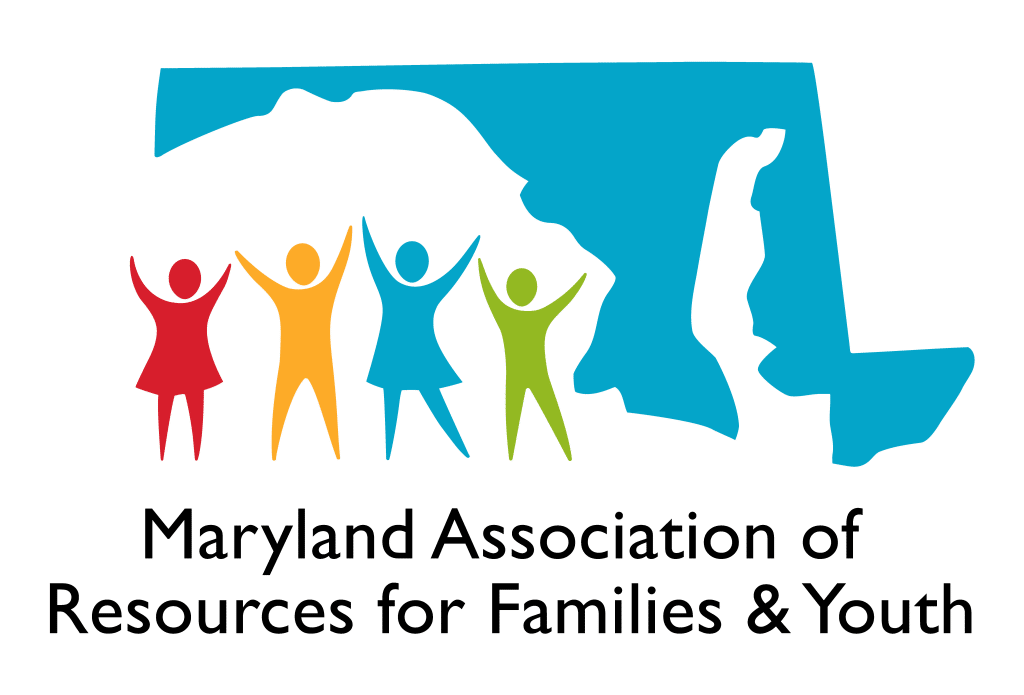By Conner Wolfe, Executive Office Manager
The Farm, Food, and National Security Act of 2024 (H.R.8467) is advancing in the House, and the Rural Prosperity and Food Security Act of 2024 is expected in the Senate. These bills should aim to support Maryland’s nonprofits and marginalized communities by fostering justice and equity in federal food and agriculture policy.
Maintain Funding for SNAP and WIC
Maintaining robust funding for SNAP and WIC is essential for advancing equity and justice. These programs provide crucial support to low-income families, ensuring access to nutritious food, which improves health outcomes and stimulates local economies. In 2023, Pew Research found that 27% of SNAP users are Black, 27% are Hispanic, and 10.4% are other people of color, highlighting the program’s importance for communities facing systemic inequities.
The Farm Bill as passed by the House Agriculture Committee cuts $30 billion from SNAP over the next decade, amounting to one of the largest cuts to SNAP benefits since 1996. This undermines progress made in 2021 when the USDA modernized the Thrifty Food Plan (TFP), resulting in a 21% increase in SNAP benefits. The 2024 Farm Bill introduces exciting pilot programs and collaborations with nonprofits to enhance access to nutritious food and proposes increased flexibility for SNAP recipients to purchase a wider variety of foods, accommodating diverse dietary needs.
Advance Environmental Justice and Public Health
Environmental justice and public health are intertwined goals that must be central to the 2024 Farm Bill. Agriculture contributes 10% of greenhouse gas emissions from man-made sources in the U.S. according to the Environmental Protection Agency. The bill should address the disproportionate impact of pollution and climate change on marginalized communities by fully funding agricultural climate-smart conservation programs like the Environmental Quality Incentives Program (EQIP), Conservation Stewardship Program (CSP), USDA Climate Hubs, Regional Conservation Partnership Program (RCPP) and more.
The Conservation Reserve Program (CRP) acreage cap should be gradually increased. Programs such as the Hispanic-Serving Institutions Education Grants Program, Agriculture and Food Research Initiative (AFRI) and the Agriculture and Food Research Initiative (AFRI) support the efforts of nonprofits to mitigate climate change and pollution effects, promoting food security and improving agricultural practices. The 2024 Farm Bill must ensure robust funding for these nonprofit educational grant programs to continue supporting environmental justice and alleviating the climate crisis.
Protect In-Kind Donors from Liability
The 2024 Farm Bill should offer liability protections for good-faith individuals and organizations donating pet food and supplies as proposed by the Bringing Animals Relief and Kindness (BARK) Act (S.2370/H.R.4750), similar to the protections under the Bill Emerson Good Samaritan Food Donation Act for human food. This measure encourages donations to animal shelters and rescue organizations allowing them to allocate more resources to direct animal care.
Address the Challenges of Farm Workers
Approximately 63% of farm workers are of Hispanic origin according to the USDA Economic Research Service. The 2024 Farm Bill must improve workplace safety standards, such as implementing and enforcing protections from harmful chemical exposure, providing mandatory training on chemical safety and holding employers accountable. It should also simplify the process for migrant farm workers to obtain legal status by expanding the Certified Agricultural Worker (CAW) status and reforming the H-2A visa program to address long-standing injustices and providing stability for farm workers.
Boost Rural Development
The 2024 Farm Bill should boost rural economies by funding infrastructure projects like childcare and broadband internet access. Improved infrastructure is crucial for economic development and connectivity. Establishing the Expanding Childcare in Rural America Initiative and refunding the Affordable Connectivity Program, as proposed by the Affordable Connectivity Program Extension Act of 2024 (S.3565/H.R.6929), are key initiatives for enhancing quality of life in rural communities.
Conclusion
The 2024 Farm Bill, encompassing the Farm, Food, and National Security Act (H.R.8467) and the forthcoming Rural Prosperity and Food Security Act, holds the potential to significantly advance equity and justice in Maryland and beyond.
By maintaining robust funding for SNAP and WIC, addressing environmental justice, protecting in-kind donors, improving farm worker conditions and boosting rural development, this legislation can support marginalized communities, enhance public health, stimulate economic stability, and promote sustainable agricultural practices. Through these comprehensive measures, we can foster greater quality of life and equity for all.




